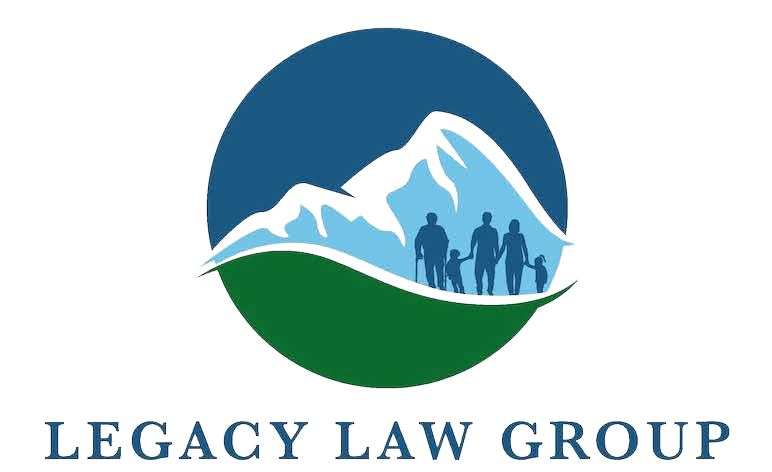Soon after the challenges of puberty and the excitement of high school, an even larger milestone looms: the 18th birthday. It marks your child’s transition from childhood to adulthood, and with it new responsibilities and rights. From a legal standpoint, this milestone also brings significant changes that every parent should be aware of.
In the eyes of the law, an individual is considered a legal adult at the age of 18. This means that your child gains certain rights and privileges, including the ability to enter into contracts, vote, buy property, and make medical decisions for themselves. While this newfound independence is a crucial part of growing up, it can also pose challenges for parents, especially when adult children need their parents’ help or need someone to make decisions on their behalf.
In this blog post, we’ll explore what happens legally when your child turns 18, what it means for your ability to make legal, financial and healthcare decisions on their behalf, and what tools you’ll need for a smooth transition to adulthood.
How The Law Changes Your Role As A Parent
On the day your child turns 18, your ability to make legal, financial and healthcare decisions for them essentially disappears in a blink. To give you a sense of how impactful this can be, if your now 18-year old or older child is hospitalized and unable to communicate their wishes, healthcare providers won’t even legally be able to share your child’s medical information with you. Similarly, financial institutions won’t permit you to access your child’s accounts or make financial decisions on their behalf without their consent – or unless you’re a co-owner of their accounts.
This shift in decision-making authority can feel unsettling and can be particularly challenging if your child is still financially dependent on you, is in a medical emergency, or requires assistance in managing their affairs due to a disability. Thankfully, there are legal tools that can help parents and young adults navigate these new challenges.
Have Their Back With Powers of Attorney
A Power of Attorney is a legal tool that allows your child to designate the person they choose to make legal or healthcare decisions on their behalf. There are two common types of Powers of Attorney that can be valuable in this situation: a General Durable Power of Attorney and a Power of Attorney for Healthcare.
A General Durable Power of Attorney allows your child to appoint someone to manage their financial affairs in the event they become incapacitated or if they just want help managing their finances. With this in place, you can continue to assist your child with financial matters, even after they turn 18.
The important thing to remember however is that not every financial institution will honor a Power of Attorney, so while every adult should have this legal tool, it’s important to check with your specific institution and possibly set up your child’s accounts in a different way to ensure you have immediate access to them if needed. We’d be happy to discuss which options are best for you and your adult child.
A Power of Attorney for Healthcare grants someone the authority to make medical decisions on your child’s behalf if they are unable to do so, such as medication and treatment options, nutritional needs, and life-support measures. This is crucial to ensure that your child receives the care they want, even if they cannot communicate their preferences.
Only your child can put these measures in place, but encouraging them to create these legal documents is a proactive step in maintaining your ability to assist them when they need it most.
Stay Informed With a HIPAA Waiver
The Health Insurance Portability and Accountability Act (HIPAA) is a federal law that protects the privacy of individuals’ medical records. Once your child turns 18, their medical information is protected under HIPAA, and healthcare providers are prohibited from disclosing it to anyone without the patient’s explicit consent – parents and family members included.
To maintain access to your child’s medical information, they must complete a HIPAA waiver. This document permits healthcare providers to share medical information with individuals specified in the waiver, such as parents or trusted family members.
Having a HIPAA waiver in place can be invaluable during medical emergencies when swift access to medical records is critical. It can also be a valuable tool for young adults who may simply appreciate a parent’s ability to speak to their doctors when they aren’t feeling well or are overwhelmed with the demands of work, college, or both.
Support Their Journey Into Adulthood Through Open Communication
Transitioning to adulthood is a significant step for both parents and children. While legal documents such as Powers of Attorney and a HIPAA Waiver are essential, it’s equally important to have open and honest conversations with your child about their wishes and the responsibilities that come with adulthood.
Discuss their healthcare preferences, financial decisions, and their expectations from you as a parent. Encourage them to consider creating these legal documents not only for your peace of mind but also for their own protection.
We invite you to reach out to our firm at any time, but if you have a teen who is approaching adulthood, reach out to us right away to ensure your child has the legal support and protection they need no matter what adulthood brings.
And if you aren’t sure how to talk with your adult child about these legal tools, we can help you start the conversation from a place of love, compassion, and collaboration.
Schedule a complimentary call today to get started, and when you do ask about our special offer of free legal documents for your young adult, when you schedule your own Life & Legacy Planning Session with us.
To get started, click here and schedule a complimentary 15-minute call.









